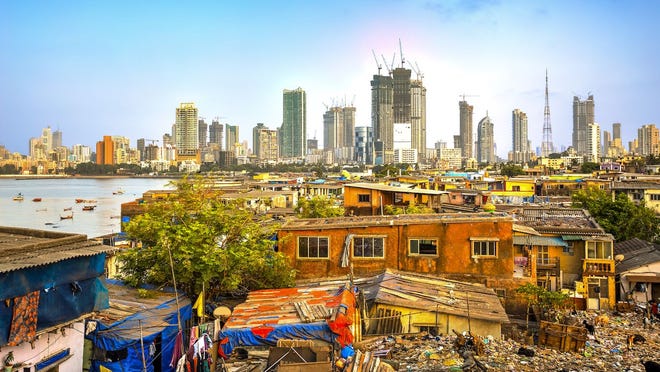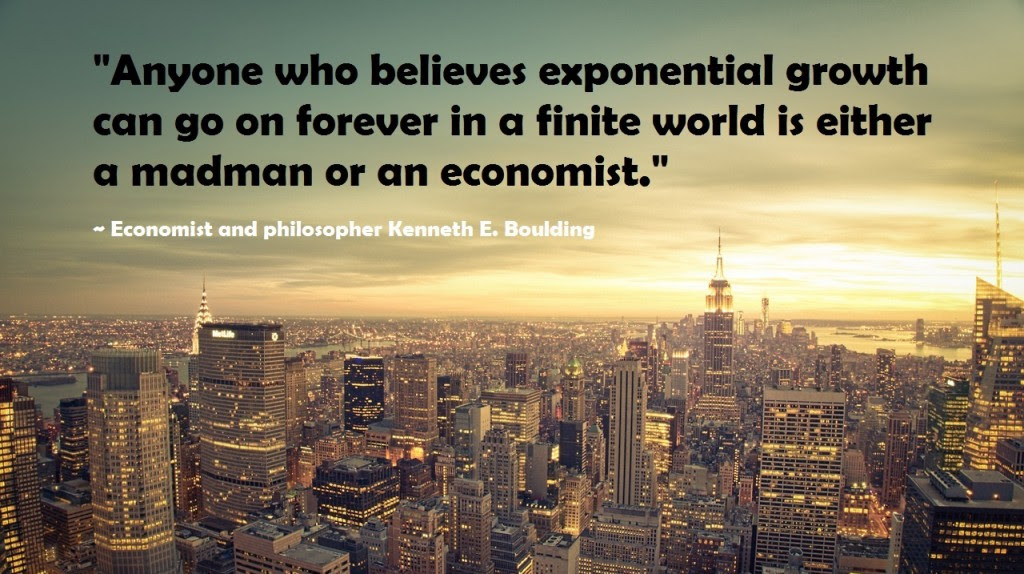With this?

Photo:theconversation.com
Or this?

Photo:Brexit: a totally mad day
Or are there any better ways? You bet, there are!

Photo: Getty Images
This is How: Have imagination and make the country fairer, more just and more human. Measure what is important and meaningful.
In short, be for the common good. Be for the many and not the few! Carpe diem!
‘For almost a hundred years, two measurements have been used to get a sense of how well a country is doing. One is GDP, or gross domestic product, the amount a country earns. The other is its unemployment rate. But when it comes to figuring out how well a country is serving its citizens, these tools might not only be incomplete: they may not in fact be that helpful at all.’- Amanda Ruggeri, Editor, BBC Future
Citizens' wellbeing should be part of G20's priorities, says report
‘Thinktank says nations need to focus on social prosperity in the fight against extremism.’
“In addition to being materially prosperous, we need empowerment and agency – that is the ability to shape our destiny through our own efforts – and we need solidarity – that is we need to be embedded within our social circles.”
‘The G20 needs to move beyond economic growth and GDP as a measure of progress and factor in human wellbeing and social prosperity, one of its key advisors has said in a new report.
Economic Growth: The Index of Misery

Photo:bing.com
In a hard-hitting report due to be submitted to the G20 group of leading developed and developing countries, experts said that issues including the climate emergency and mental health meant judging progress required a different yardstick of success.
It’s All in The Mind: Focus on Mental Health
Dreaming About Utopia to Make the World Great Again
Against a backdrop of heightened political unrest in several major western nations despite continued growth in economic prosperity, Dennis Snower, president of the Global Solutions Initiative, a thinktank with links to the group of rich nations, said they should adopt a “recoupling dashboard” to assess wellbeing and environment alongside GDP.
Crisis after Crisis: Financial Crisis. Credit and Banking Crisis. Environmental and Ecological Crisis. Biodiversity Crisis. Housing Crisis. Health and Well-being Crisis. Education Crisis. Spiritual and Moral Crisis. Trust and Trusting Crisis. Indifference Crisis. Fake, Fake News and Faking Crisis. Reality Crisis. Populism and Fascism Crisis,...all of them leading ours to be a generalized "time of crisis."
The report, shared exclusively with the Guardian, Die Zeit and Der Tagesspiegel, said there was an urgent need for all nations to use the dashboard to dramatically increase their focus on social prosperity, as a key tool in the fightback against growing political extremism across advanced economies.
In an interview with the Guardian to mark the launch of the report, Snower said: “The financial crisis of 2008 made all these issues much more salient. Lots of people are now saying ‘I’m sorry but this system sucks’.
“In addition to being materially prosperous, we need empowerment and agency – that is the ability to shape our destiny through our own efforts – and we need solidarity – that is we need to be embedded within our social circles.”
In a proposal floated ahead of the G20 summit in Saudi Arabia later this year, the dashboard would include four separate measurements of economic and social prosperity: GDP per capita and environmental performance, as well as two new indexes assessing the “solidarity” and “empowerment” of citizens.
All four dimensions would need to be in harmony to show a country was adequately serving the needs of its citizens, according to the proposals drawn up by Snower and Katharina Lima de Miranda, an academic at the Kiel Institute for the World Economy.
The empowerment and solidarity indexes are drawn from existing major surveys of wellbeing compiled by the UN, World Bank and OECD, including assessments of job security, education levels, life expectancy, charitable activity, trust in strangers and confidence in government.
Under the new dashboard, New Zealand, Finland and Iceland are among the most progressive nations on earth, while the US dramatically underperforms its level of GDP per head.
India, China and Mexico rank among the worst performers on the dashboard of 35 nations.
The report said that, over the past decade, the dashboard shows the empowerment of citizens and GDP levels in the UK have increased yet social solidarity has fallen, suggesting that the country has become more “neoliberal”.
UK’s Broken Economic Model: A New Path is Called for- I offer you the Common Good
Death and Destruction on Brothers’ Road to Serfdom
Neoliberalism destroys human potential and devastates values-led education
Dear Prime Minister-Britain needs a New Economic Model
Although the plan could face resistance from some G20 nations and there is no guarantee the dashboard will ultimately be adopted, Snower said the proposal was the first stage in a drive to get countries to look beyond GDP as a signal of success.
In the last four decades, globalisation and technological advances have generated significant growth in GDP, but have been accompanied by rising inequality, global heating and a sense of disempowerment among various groups.
Several countries around the world are staging attempts to move beyond GDP and focus instead on the wellbeing of citizens. Last year, New Zealand’s Labour coalition government unveiled what it said was a “world-first” wellbeing budget, raising its spending on mental health services and tackling child poverty.
What if Universities Taught KINDNESS?
Wouldn’t the world be a better place with a bit more kindness? Harnessing the Economics of Kindness
Today is World Kindness Day: Embracing Kindness to Defeat the Political Economy of Hatred
The Value of Values: Values-led Education to Make the World Great Again
Snower said that had nations monitored the wellbeing of citizens as much as GDP they would have had earlier warning signs about the fragmentation of society and rise of populist politics. He added: “Globalisation has costs that we’ve been blind to, and solidarity and empowerment have suffered.”
*The article above by Richard Partington, the Guardian's economics correspondent, was first published in the Guardian On Thursday 20 February 2020.
